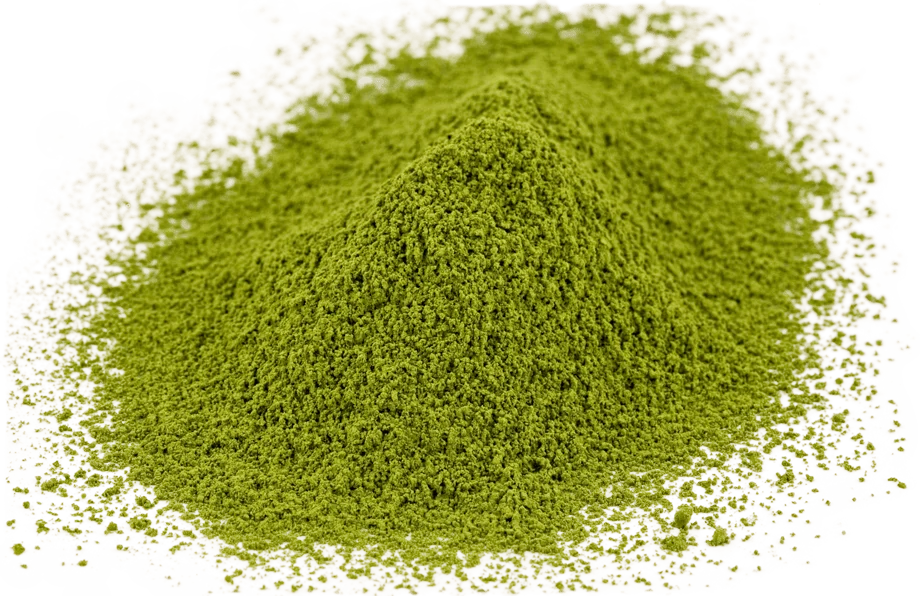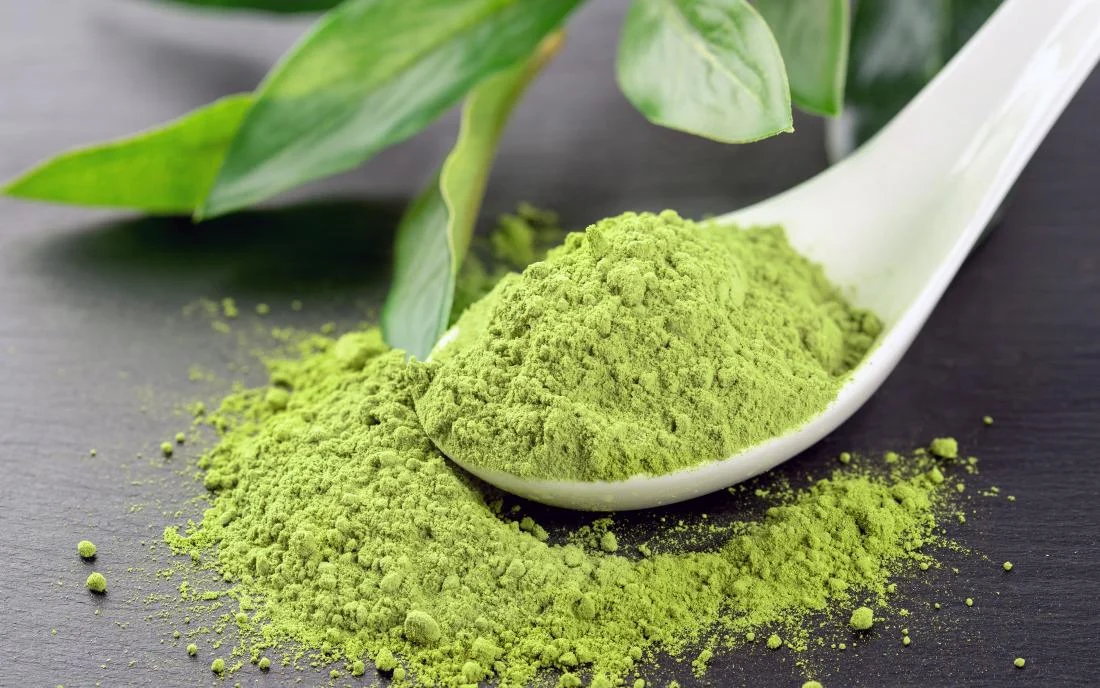As you browse for matcha, the “Organic” label inevitably catches your eye. It often comes with a higher price tag and a promise of purity, health, and environmental stewardship. This naturally leads to a cascade of questions: Is organic matcha powder truly better for you? What is the real difference between organic and conventional matcha? And is it worth the extra money?
You’re not alone in asking. In fact, the choice between “organic” and “conventional” matcha is more nuanced and fascinating than many realize. It’s a story that involves intricate farming traditions, complex biochemistry, and a delicate trade-off between ultimate purity and peak flavor.
This ultimate guide will take you deep into the world of organic matcha, providing an honest, comprehensive, and fact-based answer. We will uncover the true differences in cultivation, flavor, nutrition, and safety, empowering you to make the most informed choice based on what you value most.
The Core Conclusions at a Glance
- The Purity Advantage: Yes, organic matcha is purer. The single greatest and most direct benefit of choosing organic is the assurance that you are consuming tea grown without synthetic pesticides, herbicides, or chemical fertilizers.
- The Flavor & Color Trade-Off: In the highest echelons of “ceremonial grade” matcha, some top-tier conventionally grown options may have a slight edge in terms of color vibrancy and the intensity of their “umami” (savory-sweet) flavor.
- Is It Worth It?: If your top priority is avoiding any potential pesticide residue and supporting sustainable agriculture, then organic matcha is absolutely worth it. If your sole pursuit is the absolute peak of sensory experience (the most intense flavor), some high-quality conventional matchas are also a valid choice.
- Daily Drinking: For most healthy adults, it is safe to drink high-quality matcha—whether organic or conventional—in moderation every day.
The Fundamental Difference: What Separates Organic from Conventional Matcha?
At its heart, the difference is all about how the tea is grown.
Farming Methods: Natural vs. Traditional Agriculture
- Organic Matcha: To earn the organic label, tea farmers must rely entirely on natural methods to cultivate their plants and manage pests. They use natural fertilizers like compost and fish meal, and control pests through physical means (like netting) or biological controls. The entire process strictly prohibits the use of any synthetic chemical pesticides, herbicides, or fertilizers.
- Conventional Matcha: Conventional farming allows for the use of government-approved synthetic pesticides and fertilizers. These tools help farmers achieve more consistent yields and protect their crops from sudden pest infestations. It is crucial to note that Japan has extremely strict standards for pesticide residue, meaning high-quality conventional matcha is also a very safe product.

The Gold Standard of Certification: The JAS Seal
In Japan, the term “organic” is a legally protected designation. For a product to be labeled as organic, it must be certified under the Japanese Agricultural Standard (JAS). This is a rigorous process where every step—from the soil and fertilizer to the final processing—must meet strict organic criteria and is subject to inspection by a third-party organization. Seeing the JAS logo on a package is your guarantee that you are purchasing authentic organic matcha.
The Great Umami Debate: A Subtle Trade-Off in Taste and Color
This is one of the most interesting and important topics in the world of high-end matcha. Why are some of the most expensive, award-winning ceremonial matchas often conventionally grown?
The answer lies in umami. The signature rich, savory-sweet flavor of matcha comes primarily from amino acids, especially L-Theanine. To maximize the production of these amino acids during the crucial shade-growing phase, traditional farmers use nitrogen-rich fertilizers to nourish the tea plants. While safe and effective, some of the most potent nitrogen fertilizers may not be compliant with organic certification standards.
Organic farmers use natural fertilizers, which release nutrients more slowly. This can sometimes result in an organic matcha that has a slightly lighter, cleaner, and less intensely savory umami profile compared to a top-tier conventional matcha. This can also subtly affect the vibrancy of its green color.
In short: The absolute ceiling for flavor and color intensity may be slightly higher in the best conventionally grown ceremonial matcha. However, organic certification guarantees a baseline of exceptional quality and, most importantly, absolute purity across the entire product line.
Is Organic Matcha Powder Good for You? A Deep Dive into the Health Benefits
Yes, organic matcha powder is exceptionally healthy. It not only retains all the celebrated natural benefits of matcha but also adds a crucial layer of peace of mind.
Core Benefit 1: Purity and Peace of Mind—Freedom from Pesticide Residue
This is the primary reason to choose organic. Because drinking matcha involves consuming the entire tea leaf, any substance present on the leaf is ingested. Choosing a JAS-certified organic matcha means you are minimizing your exposure to potential synthetic pesticide residues to the greatest extent possible. You are enjoying the purest expression of the tea leaf.
Case in Point: Consumer Advocacy. Organizations like the Environmental Working Group (EWG) annually publish lists of produce with the highest pesticide residues (the “Dirty Dozen”). While tea is not always on this list, the principle remains the same for consumers who prioritize minimizing their “toxic load.” For these individuals, choosing organic isn’t just a preference; it’s a core part of a healthy lifestyle.

Core Benefit 2: A Full Spectrum of Natural Nutrients
Organic matcha is just as rich in the signature nutrients that make matcha a superfood:
- Powerful Antioxidants: It is loaded with catechins, especially EGCG, which fight free radicals, reduce inflammation, and may lower the risk of chronic diseases.
- L-Theanine: This unique amino acid provides the famous “calm alertness” effect, enhancing focus while reducing stress.
- Chlorophyll: The shade-growing process results in extremely high levels of chlorophyll, a natural detoxifier that helps cleanse the body.
- Vitamins & Minerals: It is a source of dietary fiber, Vitamin C, selenium, chromium, zinc, and magnesium.
Is It Worth Paying More for Organic Matcha?
The answer to this question depends entirely on your personal priorities.
- Reasons to Choose Organic:
- Health Assurance: If you are concerned about any potential chemical residues and want the purest product possible, organic is the only choice that provides this guarantee.
- Environmental & Sustainable Values: Organic farming practices are better for soil health, water quality, and biodiversity. Purchasing organic products is a vote for a more sustainable agricultural system.
- Quality Commitment: The rigorous process of organic certification is, in itself, a testament to a brand’s commitment to quality and transparency.
- When a High-Quality Conventional Matcha Might Be an Option:
- If your absolute top priority is experiencing the most intense umami and vibrant color possible in a top-tier ceremonial grade, and you trust Japan’s stringent food safety standards, then a conventional matcha from a reputable, historic tea estate is an excellent choice.
The Bottom Line: For daily drinking, especially for lattes, smoothies, and baking, organic matcha is the ideal choice that perfectly balances health, safety, and delicious flavor.
What About “Organic Everyday Matcha”? Is It Good Quality?
Absolutely. An “Everyday” or “Culinary” grade of organic matcha, provided it comes from a reputable brand, is still a high-quality product. The grades simply denote different uses.
- “Everyday” vs. “Ceremonial” Grades:
- Ceremonial Grade: Made from the youngest, most tender leaves of the first spring harvest (“ichiban-cha”). It has the most delicate, smooth, and sweet flavor profile with virtually no bitterness. It is intended to be whisked with hot water and enjoyed on its own.
- Everyday / Culinary Grade: Made from leaves harvested slightly later. The flavor is bolder, more robust, and slightly more astringent. This stronger flavor profile allows it to stand up to milk, sweeteners, and other ingredients, making it perfect for lattes, smoothies, and baking.

- How to Judge a Good Everyday Organic Matcha?
- Color: Even for a culinary grade, good organic matcha should be a bright, vibrant green, not a dull yellow-green or brown.
- Texture: The powder should be incredibly fine and feel like talc or eyeshadow.
- Source: Look for products from well-known Japanese tea regions (like Uji or Kagoshima) that feature the JAS organic certification seal.
So, “organic everyday matcha” is indeed good quality; it’s simply designed for a different, more versatile purpose.
Is It Safe to Drink Matcha Powder Every Day?
Yes, for most healthy adults, drinking a moderate amount of matcha every day is perfectly safe and beneficial.
- Science-Based Daily Intake Recommendations: While there is no official universal standard, most research and expert consensus suggest that consuming 1 to 3 servings of matcha per day (using about 1 to 3 teaspoons, or 2-6 grams, of powder in total) is a safe and beneficial range.
- Important Considerations:
- Caffeine: A serving of matcha contains about 30-70 mg of caffeine. If you are sensitive to caffeine, be mindful of your total intake and try to consume it in the morning or early afternoon to avoid disrupting sleep.
- Heavy Metals: Tea plants, like all plants, can absorb trace amounts of heavy metals (like lead) from the soil. The risk is very low, but choosing organic matcha from reputable brands that conduct rigorous testing on their products is the best way to minimize this potential concern. Organic farming practices that focus on soil health can also contribute to lower uptake.
Conclusion: Making the Smart Choice for Your Well-being
In conclusion, organic matcha powder is unquestionably a healthy and beneficial choice. It provides you with all the powerful nutritional benefits of matcha, with the added, invaluable assurance of being free from synthetic chemicals.
The choice between organic and top-tier conventional matcha is not a simple battle of “good” versus “bad,” but a nuanced decision based on personal values. For the vast majority of consumers seeking a healthy, pure, and delicious daily beverage, a high-quality organic matcha is the ideal answer that perfectly satisfies every need.
Frequently Asked Questions (FAQ)
1. Does organic matcha have more antioxidants than conventional matcha?
There is currently no conclusive scientific evidence to suggest that the nutritional content (like the amount of antioxidants) is inherently higher in organic matcha. The primary health advantage lies in the avoidance of synthetic pesticide ingestion.
2. Why is it sometimes harder to create foam with organic matcha?
This may be due to subtle differences in the chemical composition of the organically grown tea leaves (such as saponin content) or the fineness of the grind. However, this is not typically a significant issue, and using the proper tools (a bamboo whisk or electric frother) and water temperature will still produce a beautiful foam.
3. If I’m on a budget, should I buy organic everyday matcha or conventional ceremonial matcha?
This depends entirely on your intended use. If you are primarily making lattes, smoothies, or baking, organic everyday matcha is the better choice. It guarantees purity and has a flavor strong enough for mixing. If you want to try drinking pure matcha but have a limited budget, an entry-level conventional ceremonial matcha will likely provide a smoother, less bitter drinking experience.


